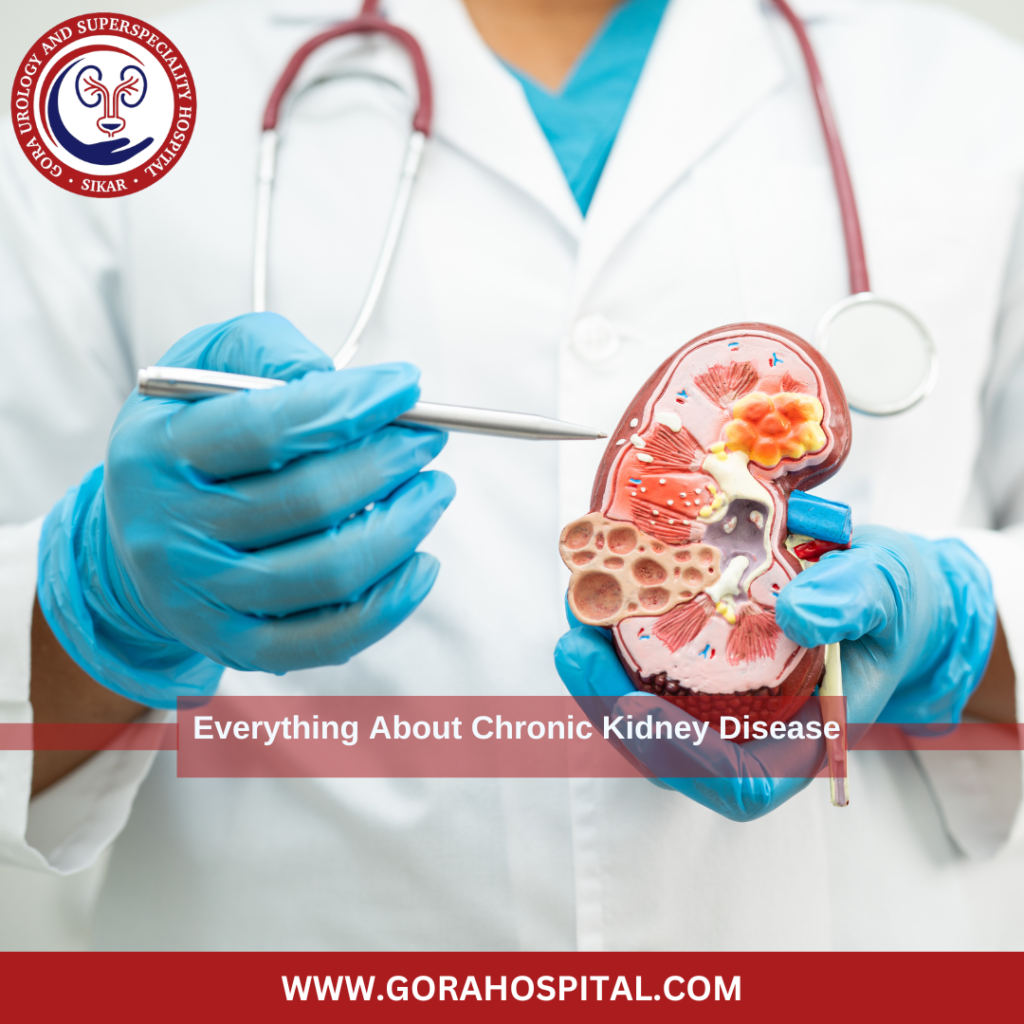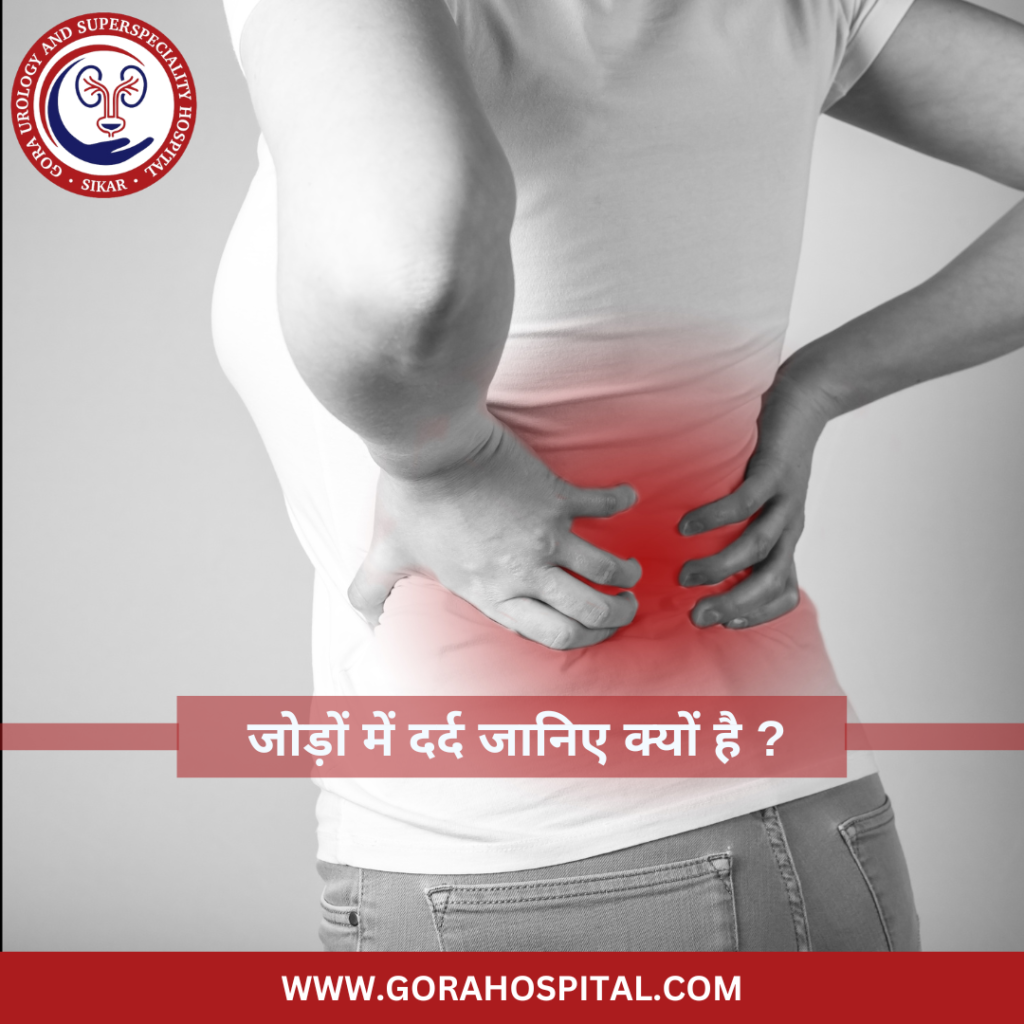
The kidney is a vital organ and is associated with major functions of the body. Chronic kidney disease is the progressive impairment of kidney function over some time. It is called chronic because it does not occur suddenly, it is a gradual process over the years. Chronic kidney disease or chronic renal disease leads to waste accumulation inside the body and could contribute to other health complications.
What are the functions of the kidney?
- The main function of kidneys is filtration through which it filters blood, tubules absorb essential nutrients and remove waste from the body.
- It eliminates drugs from the body.
- It is responsible for the maintenance of fluid balance.
- The kidney secretes hormones that regulate blood pressure.
- Kidneys produce an active form of vitamin D that keeps bones healthy and strong.
- Kidneys stimulate the production of red blood cells.
Kidney disease gets worse over the years and subsequently causes kidney failure. Dialysis or kidney transplant is the treatment of choice in patients with kidney failure to retain normal function of the body. Early kidney disease is diagnosed better. Doctors can assist you to prevent kidney damage. Consult the best Nephrologist in Sikar.
Diabetic nephropathy is the common cause of chronic renal disease in India.
What are the symptoms of CKD?
In the initial stages, CKD does not show any signs and symptoms. The only way to diagnose it is through regular check-ups and blood and urine tests. Our kidneys are capable of taking extra load when required to keep the body’s mechanisms intact. Apart from the damage, the healthy portion of the kidneys takes extra effort to keep you healthy. That is, many people survive after donating one kidney.
As kidneys are overloaded with filtration, damage starts to lead to waste build up in the body. A person may get swelling in legs, feet, ankles and rarely in upper limbs and face. It is called oedema. Oedema is due to the kidneys can’t eliminate excess salt and fluid from the body.
Other symptoms:
- Increase in a decrease in the frequency of urination.
- Tiredness and muscular cramps
- Shortness of breath
- Chest pain
- Dry skin
- Itching or numbness of the skin
- Headaches
- Loss of appetite
- Nausea and vomiting
- Insomnia
- Poor concentration
- Weight loss
- Sometimes CKD patients experience malnutrition, anaemia, and bone diseases.
Who is at high risk of CKD?
Familial history:
Chronic kidney disease has familial predisposition. If your mother or father were affected with CKD, you are more prone to it. Try to prevent the development of CKD with extra precautions and regular check-ups. To know more visit the best Nephrologist in Sikar
Diabetes patients:
Diabetic nephropathy is the most common cause of CKD. High blood glucose levels damage the blood vessels in the kidney and damage the kidneys.
Hypertension:
Second common contributing factor for CKD is high blood pressure.
Cardiovascular diseases:
Studies show the linkage between kidney disease and heart diseases, though researchers are trying to understand the exact association. Patients with cardiovascular diseases are more likely to develop renal diseases and vice versa.
CKD also increases with age.
How can CKD affect health?
Kidneys play a role in the regulation of blood pressure. High blood pressure leads to kidney diseases and vice versa. When kidneys are affected, patients may be more likely to develop heart diseases and are at greater risk of heart attack and stroke.
Acute kidney damage can be a consequence of CKD. In CKD kidney function is altered abruptly in response to illness, injury, or certain medication.
Does CKD interfere with normal life?
People are worried when diagnosed with kidney diseases as there is a misconception that all kidney diseases require dialysis. But you will feel relieved to know, there are other treatments and lifestyles, a dietary modification which pertain to a normal quality of life. With kidney disease, you can perform normal day to day life activities, maintain work-life, can enjoy yourself with family and friends, exercise and stay active. Manage your stress and if you are diabetic control your blood sugar level through a proper diet plan.
Diagnosis
Early detection of kidney diseases have a better prognosis, and you can prevent the progression to kidney failure. Tests that can detect kidney diseases are:
Blood creatinine and Calculation of Glomerular Filtration Rate:
From blood creatinine level GFR can be calculated. It is a useful diagnostic test to determine how much kidney function you have. Doctors can establish it from your blood creatinine, patient’s age, race, gender, and other parameters. GFR value will determine the stage of kidney disease and doctors can plan your treatment accordingly.
Protein in a urine test
Albumin to Creatinine Ratio (ACR), estimates the amount of albumin that is in your urine. When low levels of albumin are found in urine it indicates early stages of kidney disease whereas high levels of albumin in urine indicate kidney failure. Sometimes the result may be positive due to high fever or vigorous exercise. The doctor will cross-check your results by repeating the test after several weeks. Consult the best Nephrologist in Sikar.
Ultrasound, CT scan, kidney biopsy are other investigations required to evaluate kidney disease.






